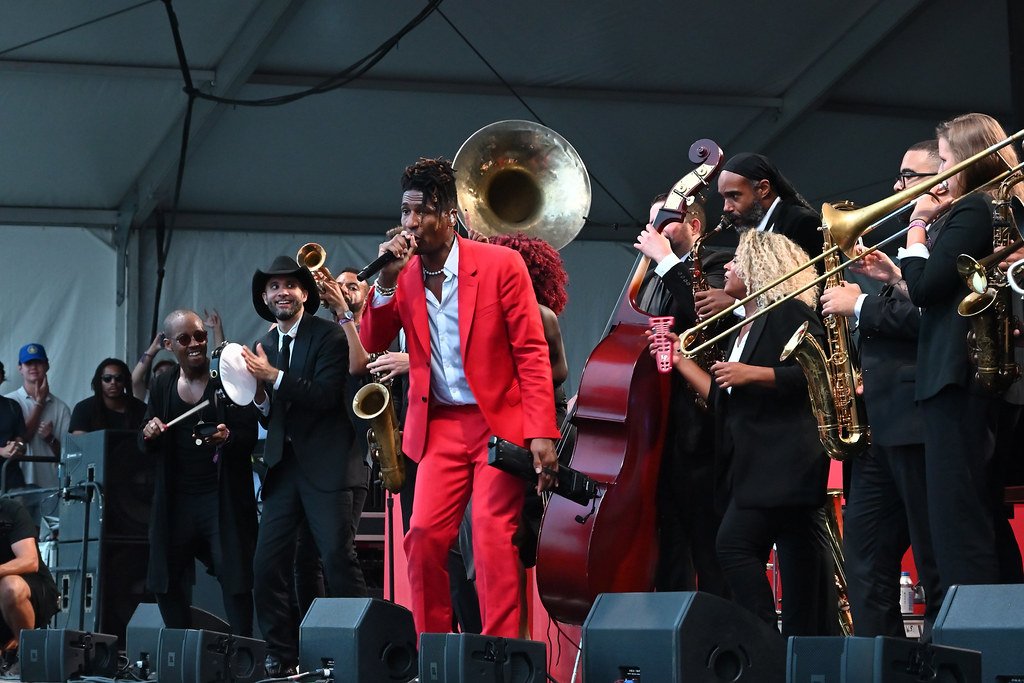Your Voice: An Instrument of Power & Connection
Jon Batiste, photographed by Kevin Hill
At this year’s Newport Jazz Festival, Greg and I reconnected with Melissa Walker, Founder & President of JAZZ HOUSE KiDS and wife of the Festival’s Artistic Director and bassist extraordinaire, Christian McBride. As the three of us were chatting, Greg looked at the two of us and proclaimed that our voices are his absolute favorites (I was happy to be included on his list!) Melissa’s voice is indeed mellifluous—nestled in a deep register, her tone is husky with an earthy, velvety timbre that caresses each word and keeps you keenly attentive to what she is saying.
Years ago, when I was doing voice-overs, I remember a specific direction from a producer that has stayed with me. They asked me to say the copy with a smile in my voice –– what a difference that made to the read. As I was mulling the impact of our voice in communication and considering this topic for a post, I attended a scheduled session of an integral development course. At the end of a break-out exercise, my partner told me that my voice and intonation was my gift, which he enjoyed immensely as we moved through the exercise. It was not the first time that someone has commented on the calming resonance of my voice.
Let’s go back to the Newport Jazz Festival and the masterful performance by pianist Jon Batiste, which sparked a standing ovation almost from the beginning of his performance with a big band. Characterizing Batiste’s voice, I’d say: his tone was one of exuberance, his timbre exuded joyousness welcome, his vibration was invitational, and his pitch energetic—all culminating into a magnetism that drew you into his frequency of love.
When we consider all the ways our voice can transmit emotion and meaning, being aware of our tone, timbre, vibration, rhythm, frequency, intonation, pitch, and the impact these can have on how others receive and experience our communication, requires conscious awareness. We use words, musically or spoken, to integrate and express the quality of what we’re feeling. As we do, where do we speak from and what is the intent of our interaction?
Voice as a Healing Tool
Dr. Joseph Michael Levry
When I read the title of an episode of spiritual leader Rev. Michael Beckwith’s new podcast series, Take Back Your Mind, it added yet another layer to the power of our voice. The podcast segment was called: “The Healing Power of Your Voice.” Rev. Beckwith’s guest was scholar, composer, author, and international speaker, Dr. Joseph Michael Levry.
Dr. Joseph Michael Levry’s universal message brings together the spiritual healing traditions of the East and West. An engineer by training, Dr. Levry earned both his Bachelor’s and Master’s degree of Science in Industrial Engineering at the Polytechnic Institute of New York and has a Doctor of Philosophy in Metaphysical Science. As a scholar, Dr. Levry interweaves ancient eastern wisdom, mysticism, and healing practices such as meditation, breath work and yoga, with western science, mathematics, modern medicine, quantum physics, and metaphysics. This interplay provides the theoretical framework for his global programs for empowerment through self-healing.
Dr. Levry maintains that the voice is a healing power that we can develop. He says that we carry power in our words and the power of the word is the power of vibration—a vibration he aligns with Daath, an aspect of the alchemy of the Kabbalah Tree of Life that is the doorway to the conscious, internal knowledge connected to the soul. Dr. Levry emphatically describes the human voice in these terms:
Your voice is your frequency, and your frequency is the medicine of the future.
Your voice is an expression of your spirit. A strong spirit is reflected in a strong voice. When a person is weakened, you can hear it in their voice.
As vibrational beings, the vibration of the voice changes brain waves which impacts behavior.
Speech patterns become our thinking patterns which then manifest in our body. We can make a conscious choice to use high frequency speech patterns that lift ourselves and others.
The words we use should match the frequency that defines the reality we want to experience.
We’ve shared Your Sound as a JLP practice which demonstrates the depth and creativity a musician brings to the bandstand. As musicians go “In the Shed” to hone their musicianship on their instruments, of which voice is a critical element, leaders must refine their voice as instrument, not only for the power of what we want to express, but also in how we deliver that expression.


